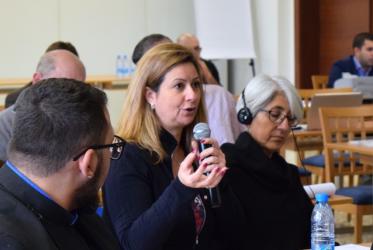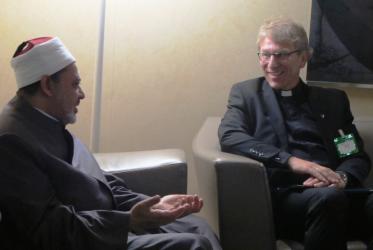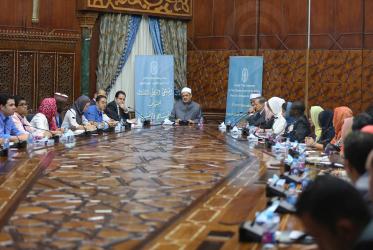Displaying 81 - 100 of 130
14 December 2016
From Bethlehem, WCC general secretary: “Together we are stronger”
08 December 2016
Churches’ diaconal action in the Middle East analyzed
01 December 2016
Dialogue flourishes between WCC, Muslim Council of Elders
30 September 2016
WCC general secretary reflects on peace in Palestine and Israel
20 September 2016
Seminar will address youth engagement, religion and violence
19 August 2016
Tveit highlights unjust water resources for Palestinians
10 February 2016
Fleeing from – rather than to – a place
10 February 2016






